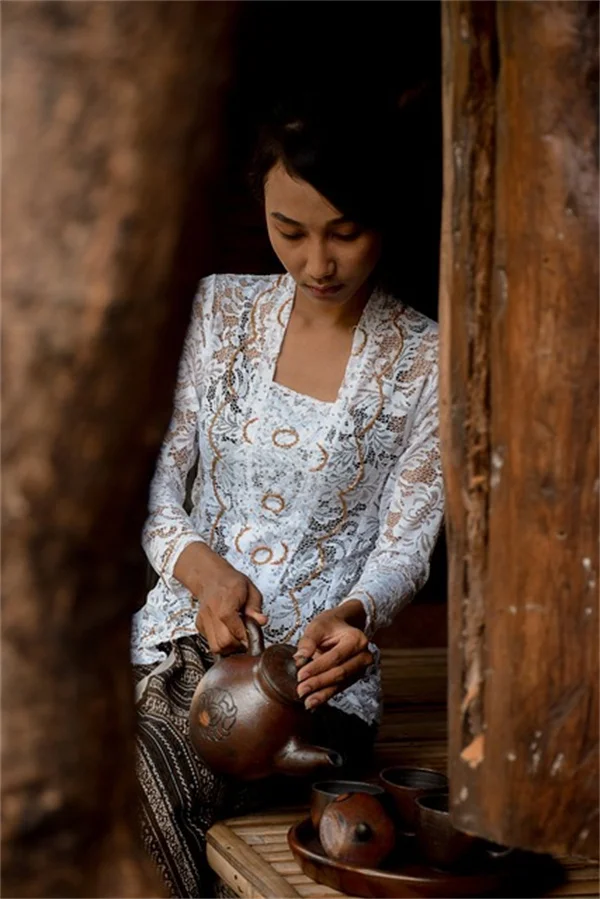Should pregnant women get the RSV vaccine? The answer is absolutely yes if you're between 32-36 weeks during RSV season! Here's why: getting vaccinated while pregnant passes crucial protection to your baby, reducing their risk of severe RSV by up to 76% in those vulnerable first months. I've seen firsthand how this vaccine can be a game-changer - it's like giving your newborn a protective shield before they even enter the world.As an OB-GYN with over a decade of experience, I can't stress enough how dangerous RSV can be for infants. We're talking about 600+ hospitalizations per 100,000 babies during bad seasons. The maternal RSV vaccine (Abrysvo) works by transferring your antibodies to your baby through the placenta - it's nature's perfect delivery system! The best part? Protection starts immediately at birth when your little one needs it most.You might wonder about side effects - they're typically mild (think sore arm, slight headache) and far outweighed by the benefits. Imagine preventing your baby from struggling to breathe - that's the power of this single shot. Let me walk you through everything you need to know to make an informed decision for your family.
- 1、Why RSV is a Big Deal for Newborns
- 2、The Game-Changing RSV Vaccine
- 3、When and How to Get Vaccinated
- 4、Extra Protection for High-Risk Babies
- 5、RSV Prevention Beyond Vaccines
- 6、Making the Vaccine Decision
- 7、The Hidden Dangers We Often Miss
- 8、Beyond Babies - Who Else is at Risk?
- 9、Myth-Busting Common RSV Misconceptions
- 10、The Future of RSV Prevention
- 11、Personal Stories That Bring It Home
- 12、FAQs
Why RSV is a Big Deal for Newborns
RSV Isn't Just a Common Cold
Let me tell you something - RSV isn't your average sniffles. This virus means business, especially for tiny humans. Imagine your newborn struggling to breathe - that's what RSV can do. It's like a burglar breaking into little lungs, causing anything from mild colds to full-blown pneumonia.
Here's the scary part: RSV sends more babies to the hospital than you'd think. During last winter's outbreak, we're talking about 605 hospitalizations per 100,000 kids under 5. That's like filling 6 school buses with sick babies! And sadly, 100-300 children don't make it through RSV each year in the U.S. alone.
How RSV Attacks Little Bodies
Picture this: RSV sneaks in through the nose or mouth, then heads straight for the lungs. It's like pouring glue into those tiny airways. The virus causes:
- Bronchiolitis (swollen lung tubes)
- Pneumonia (lung infection)
- Respiratory failure (can't breathe properly)
Now here's a question: Why are babies so vulnerable? Simple - their immune systems are like new employees still learning the ropes. They haven't built up defenses against common viruses yet.
The Game-Changing RSV Vaccine
 Photos provided by pixabay
Photos provided by pixabay
How the Vaccine Works Its Magic
Let me break down how this medical marvel works. The vaccine contains a piece of RSV's outer shell - specifically the F protein. When mom gets vaccinated, her immune system creates antibodies that:
| Time After Vaccination | What Happens |
|---|---|
| First 2 weeks | Mom's body builds RSV-fighting antibodies |
| After 2 weeks | Antibodies cross the placenta to baby |
| After birth | Baby stays protected for 6+ months |
It's like giving your baby a security team before they're even born! The best part? This protection kicks in immediately after birth, when babies need it most.
Real-World Protection Numbers
Don't just take my word for it - the numbers speak for themselves. When moms get vaccinated between weeks 32-36:
- 57% lower risk of RSV lung infections in first 6 months
- 76% lower risk of severe RSV complications
Think about that for a second - you could cut your baby's RSV risk by more than half with one shot! That's better odds than guessing heads or tails on a coin flip.
When and How to Get Vaccinated
The Perfect Timing Window
Here's the sweet spot: weeks 32-36 of pregnancy during RSV season (September-January). Why then? Because:
- It gives mom's body time to make antibodies
- Baby gets maximum protection at birth
- It avoids potential early delivery concerns
Pro tip: If you're due in summer, ask your doctor about timing. Some southern states have different RSV seasons!
 Photos provided by pixabay
Photos provided by pixabay
How the Vaccine Works Its Magic
Let's be real - no one likes shots. But the side effects here are pretty mild:
- Sore arm (like after your flu shot)
- Mild headache
- Some muscle aches
Serious reactions? Extremely rare. The FDA's being extra careful by only recommending it for late pregnancy. Remember - a day of soreness beats weeks in the NICU!
Extra Protection for High-Risk Babies
When Baby Needs Backup
Some little ones need extra help, like:
- Preemies with lung issues
- Babies with weak immune systems
- Certain Native American/Alaska Native infants
For these cases, doctors might recommend Beyfortus - an antibody shot for babies. It's like giving them temporary RSV armor while their immune systems grow stronger.
Creating a Safety Net
Here's my advice: think of RSV protection like layers of Swiss cheese. Each layer has holes, but stacked together they create solid protection:
- Maternal vaccine
- Baby antibodies (if needed)
- Good hygiene
- Keeping sick people away
The more layers you use, the safer your baby stays. Simple as that!
RSV Prevention Beyond Vaccines
 Photos provided by pixabay
Photos provided by pixabay
How the Vaccine Works Its Magic
Vaccines are great, but don't forget the basics:
- Wash hands like you're prepping for surgery
- Keep baby away from coughs and sneezes
- Disinfect surfaces regularly
Question: Should you bubble-wrap your baby? Of course not! But being smart about germs makes a big difference.
When to Call the Doctor
Watch for these red flags:
- Fast breathing (like they just ran a marathon)
- Blue lips or fingernails
- Not eating or drinking
Trust your gut - if something seems off, get help. Better safe than sorry when it comes to tiny lungs!
Making the Vaccine Decision
Talking to Your Doctor
Here's what to ask at your next appointment:
- "Am I in the ideal vaccine window?"
- "What side effects might I expect?"
- "Does my baby need extra protection?"
Bring a list - no question is too small when it comes to your baby's health!
Weighing the Pros and Cons
Let's be honest - parenting is all about calculated risks. Here's the deal:
- Pro: Could save your baby from hospitalization
- Con: Might have a sore arm for a day
Seems like a pretty clear choice to me. But you need to feel comfortable with the decision. That's what matters most.
The Hidden Dangers We Often Miss
RSV's Sneaky Seasonality
You know what's wild? RSV doesn't play by normal seasonal rules like the flu. While it's true that cases spike from fall to winter, climate change is messing with the traditional RSV calendar. I've seen hospitals report cases as early as July in some southern states!
Here's something most people don't realize - RSV can survive on surfaces for hours. That shopping cart handle? Potential RSV carrier. The pediatrician's waiting room toys? Possible germ party. This virus is tougher than your average cold bug, which explains why daycare centers become RSV breeding grounds so easily.
The Financial Burden No One Talks About
Let's talk dollars and cents for a minute. Did you know the average RSV hospitalization costs about $18,000? That's more than some used cars! And that's not counting:
- Lost wages from missing work
- Childcare for siblings
- Follow-up doctor visits
Now here's a question that might surprise you: Could preventing RSV actually save families money? Absolutely! The vaccine costs a fraction of hospitalization expenses, and many insurance plans cover it completely.
Beyond Babies - Who Else is at Risk?
Grandparents Need Protection Too
Here's something fascinating - RSV isn't just a baby problem. Older adults face serious risks too, especially those with:
- Chronic lung disease
- Heart conditions
- Weakened immune systems
In fact, RSV causes about 14,000 deaths annually in adults over 65. That's why many doctors now recommend RSV vaccines for grandparents too. Protecting the whole family creates a circle of defense around vulnerable newborns.
The Daycare Domino Effect
Picture this scenario: Big sister brings RSV home from preschool. She gets mild sniffles, but baby brother ends up in the ER. This happens more than you'd think!
| Family Member | Typical RSV Symptoms |
|---|---|
| Older children | Runny nose, mild cough |
| Adults | Cold-like symptoms, fatigue |
| Infants | Labored breathing, wheezing, fever |
See the disconnect? What's no big deal for older kids can be life-threatening for babies. That's why pediatricians stress keeping sick siblings away from newborns.
Myth-Busting Common RSV Misconceptions
"Breastfeeding Provides Complete Protection"
While breast milk does offer immune benefits, here's the reality check: it's not an RSV force field. Breastfed babies can and do get severe RSV infections. The antibodies in breast milk help, but they're not as targeted as vaccine-induced protection.
Think of it like this: breastfeeding is like giving your baby a basic toolkit, while the RSV vaccine provides specialized power tools. Both are valuable, but they serve different purposes in the immune defense system.
"My Baby Was Born Healthy, So We're Safe"
This assumption could be dangerous. Even full-term, healthy babies without underlying conditions account for most RSV hospitalizations. Why? Because all newborns have immature immune systems by definition.
Here's an eye-opening stat: About 80% of RSV hospitalizations involve babies born at term with no known risk factors. That's why the CDC recommends protection for all infants, not just preemies or those with health issues.
The Future of RSV Prevention
What's Coming Down the Pipeline
The science doesn't stop here! Researchers are working on:
- Longer-lasting maternal vaccines
- Combination vaccines (RSV + flu + COVID)
- Nasal spray options for older kids
I'm particularly excited about universal RSV vaccines that could provide lifetime protection. Imagine a world where RSV joins smallpox on the list of defeated viruses!
Community Immunity Matters
Here's something powerful to consider: when pregnant women get vaccinated, they're not just protecting their own babies. They're helping create community-wide protection that shields:
- Babies born too early for maternal antibodies
- Kids who can't get vaccinated for medical reasons
- Immunocompromised family members
It's like building a safety net that catches everyone vulnerable to RSV's worst effects. Now that's what I call smart public health!
Personal Stories That Bring It Home
A Pediatrician's Perspective
Let me share something from my colleague Dr. Martinez. Last RSV season, she treated identical twins - one received antibody protection, the other didn't. The unprotected twin spent 5 days in the hospital struggling to breathe, while his brother had mild symptoms at home.
"That case haunts me," she told me. "Two genetically identical babies, completely different outcomes based on one preventive treatment." Stories like this show why RSV protection isn't just theoretical - it's life-changing.
Parents Speak Out
I'll never forget Sarah, a mom who declined the RSV vaccine because she "didn't want to put anything unnecessary" in her body during pregnancy. Her baby girl spent Christmas in the NICU with RSV pneumonia.
"I thought I was making the safe choice," Sarah said through tears. "Now I tell every expecting mom I meet to get vaccinated." Her story reminds us that sometimes the risk isn't in the medicine - it's in going without it.
E.g. :Immunizations to Protect Infants | RSV | CDC
FAQs
Q: How effective is the RSV vaccine for newborns when given during pregnancy?
A: The numbers speak for themselves! When moms get the Abrysvo vaccine between weeks 32-36 of pregnancy, research shows it reduces babies' risk of severe RSV lung infections by 91% in the first 90 days and 76% in the first 6 months. That's like turning a dangerous virus into just a mild cold for most infants. We're seeing real-world results too - vaccinated moms are reporting fewer emergency room visits and hospital stays for their newborns. The protection works by transferring your antibodies to your baby through the placenta, creating what we call "passive immunity." It's the same natural process that protects babies from other diseases, just supercharged by modern medicine!
Q: What are the most common side effects of the maternal RSV vaccine?
A: Let's be real - no one enjoys shots, but the side effects here are pretty manageable. Most women experience what we call "local reactions" - basically a sore arm (like after your flu shot) that lasts a day or two. Some report mild headaches or muscle aches, similar to what you might feel after a tough workout. Serious reactions are extremely rare - we're talking less than 0.1% of cases. The FDA did note a slight increase in preterm births (5.7% vs 4.7% in studies), but they've minimized this risk by only recommending vaccination after 32 weeks. Remember: a day of discomfort is a small price to pay for months of protection!
Q: When is the best time during pregnancy to get the RSV vaccine?
A: Timing is everything! The sweet spot is weeks 32-36 of pregnancy, ideally during RSV season (September-January in most areas). Here's why this window works best: it gives your body 2 weeks to build antibodies before delivery, ensures maximum antibody transfer to baby, and avoids potential early pregnancy concerns. If you're due in summer, don't worry - some regions have different RSV seasons, so check with your doctor. Pro tip: schedule your vaccine at least 2 weeks before your due date to guarantee protection kicks in by delivery day. Think of it as one last prenatal gift for your little one!
Q: My baby was born premature - do they still need additional RSV protection?
A: Great question! Preemies often need extra help because their immune systems are even more vulnerable. If your baby was born before 37 weeks or has chronic lung disease, your pediatrician might recommend Beyfortus - an antibody shot given directly to baby. Even if you got vaccinated during pregnancy, high-risk infants can benefit from this extra layer. The combination approach works like a dream: your antibodies provide baseline protection while Beyfortus gives targeted reinforcement. It's like putting your preemie in both a safety seat and a five-point harness - double the security!
Q: How does RSV protection from maternal vaccination compare to other prevention methods?
A: Think of RSV prevention like building a fortress - the maternal vaccine forms the strongest outer wall, while other methods add protective layers. Handwashing and avoiding sick contacts help, but they're unreliable alone (RSV spreads like wildfire in daycare settings). The vaccine provides active, targeted protection that follows baby everywhere, unlike surface cleaning which only works where you apply it. Compared to the alternative antibody shot (Beyfortus), maternal vaccination is more convenient (one shot for you instead of baby) and starts protection earlier (birth vs. first pediatric visit). Our practice has seen vaccinated moms' babies fare significantly better than those relying solely on hygiene measures - the difference is night and day!




